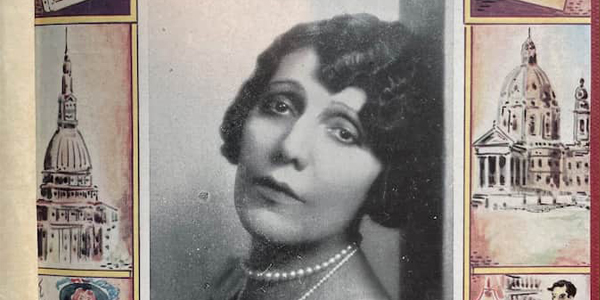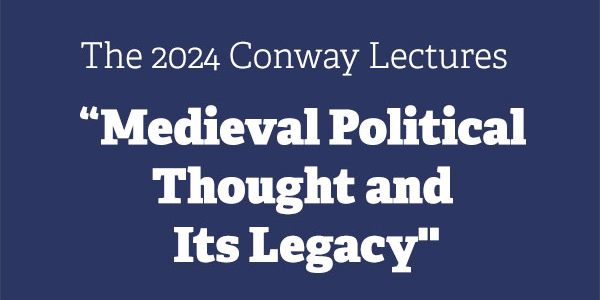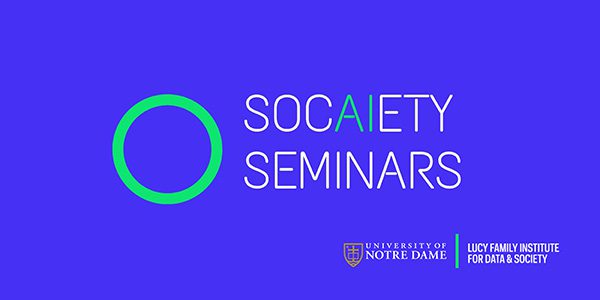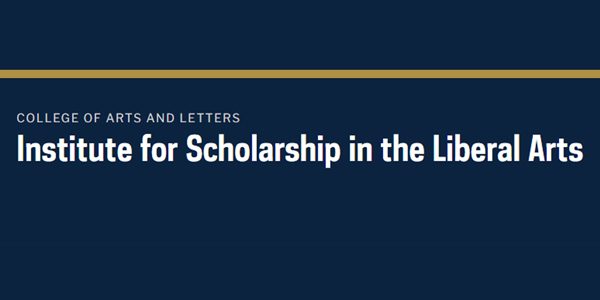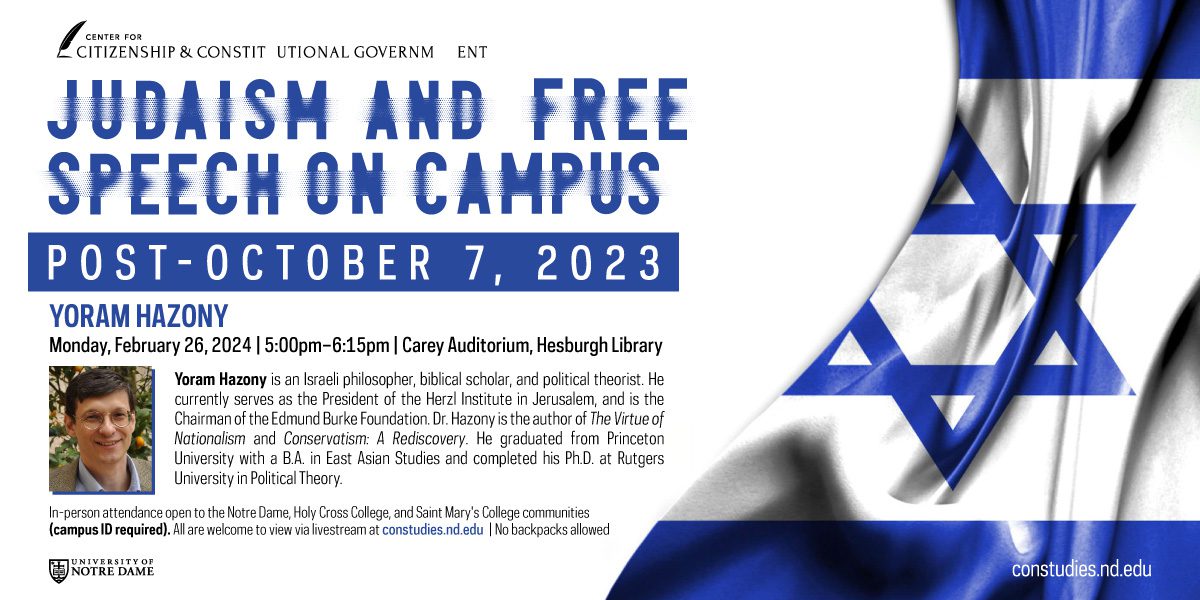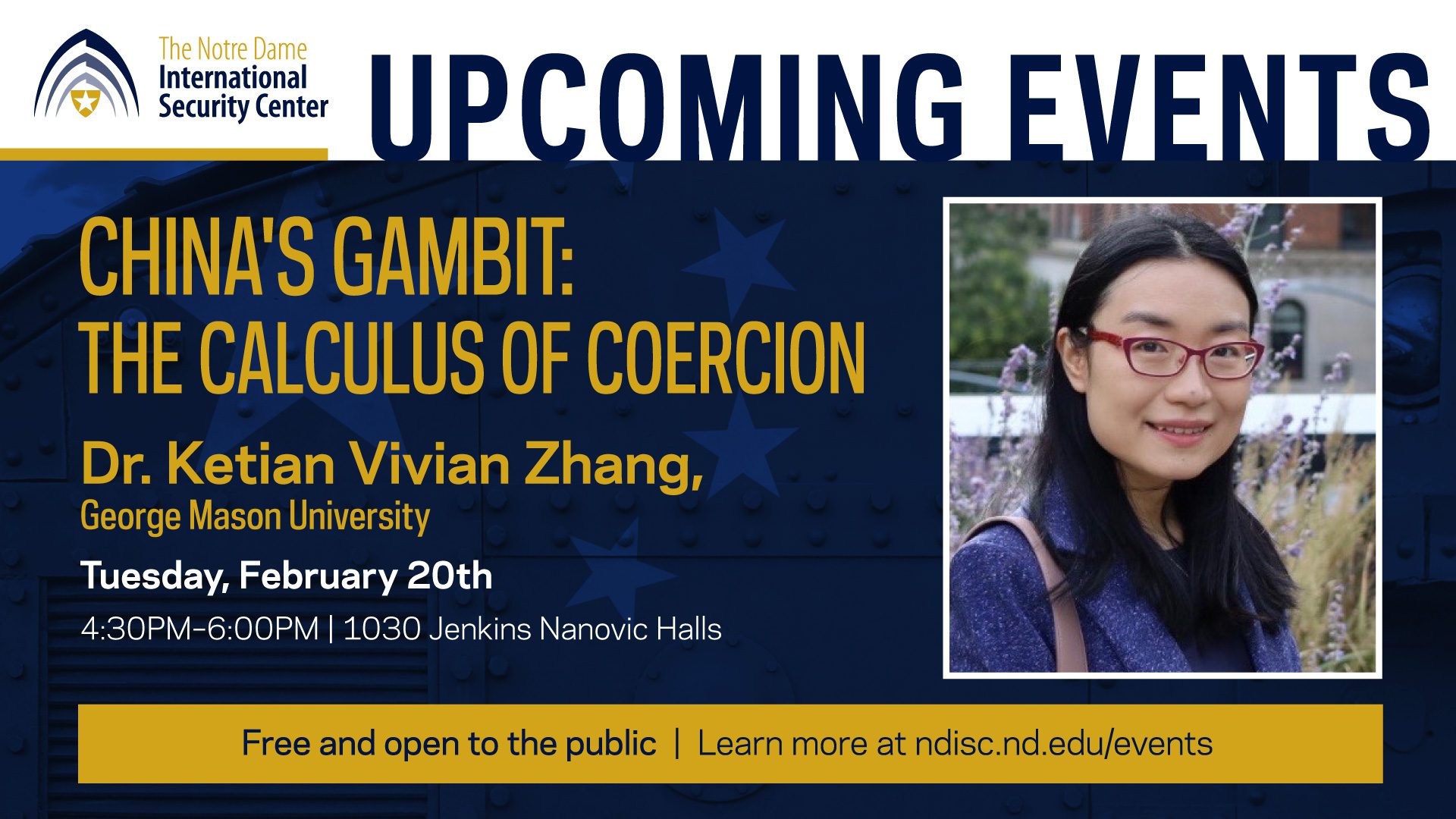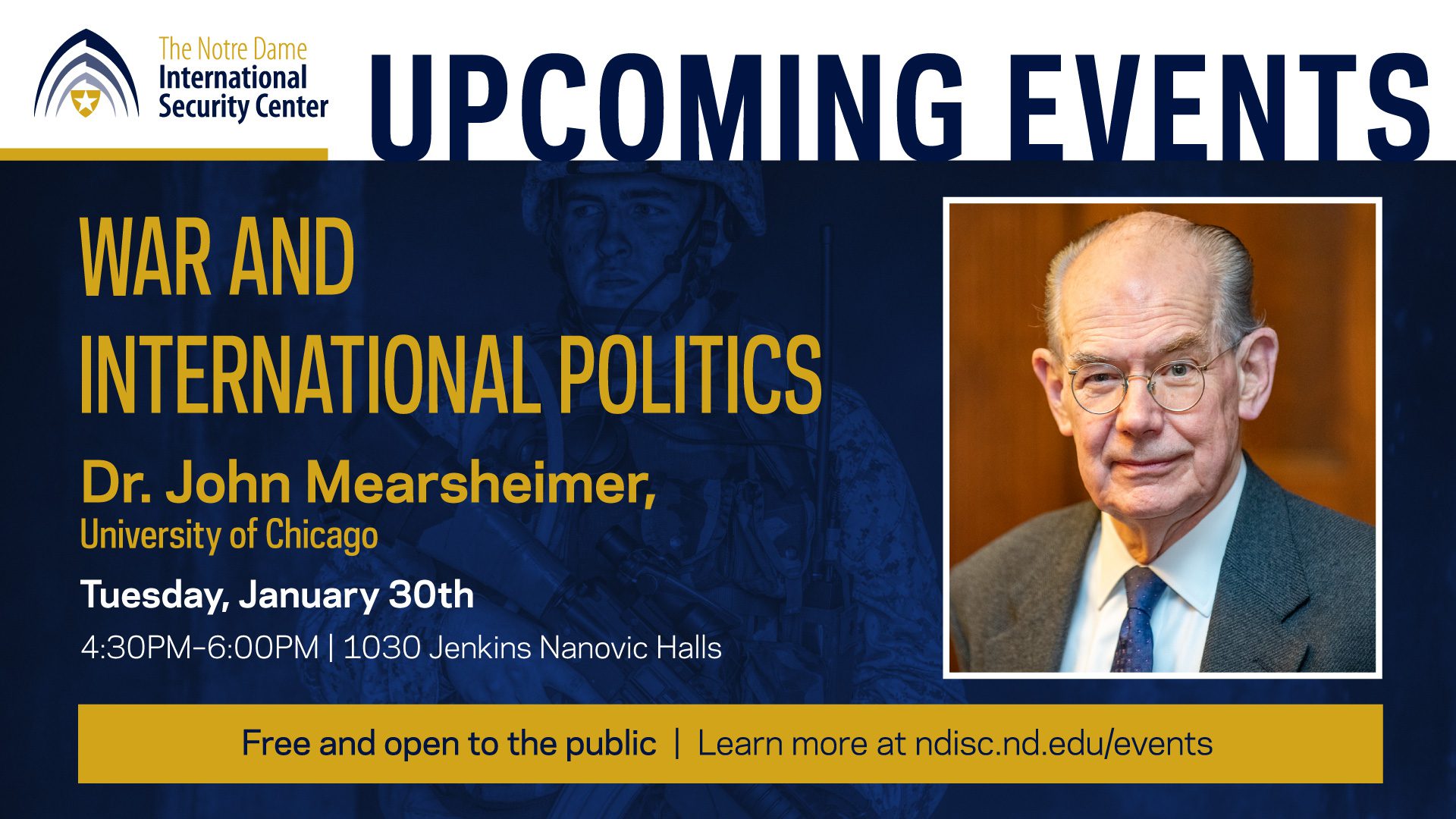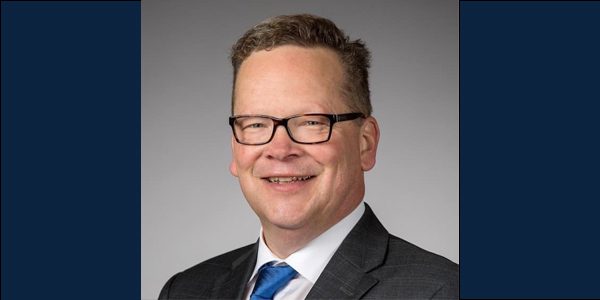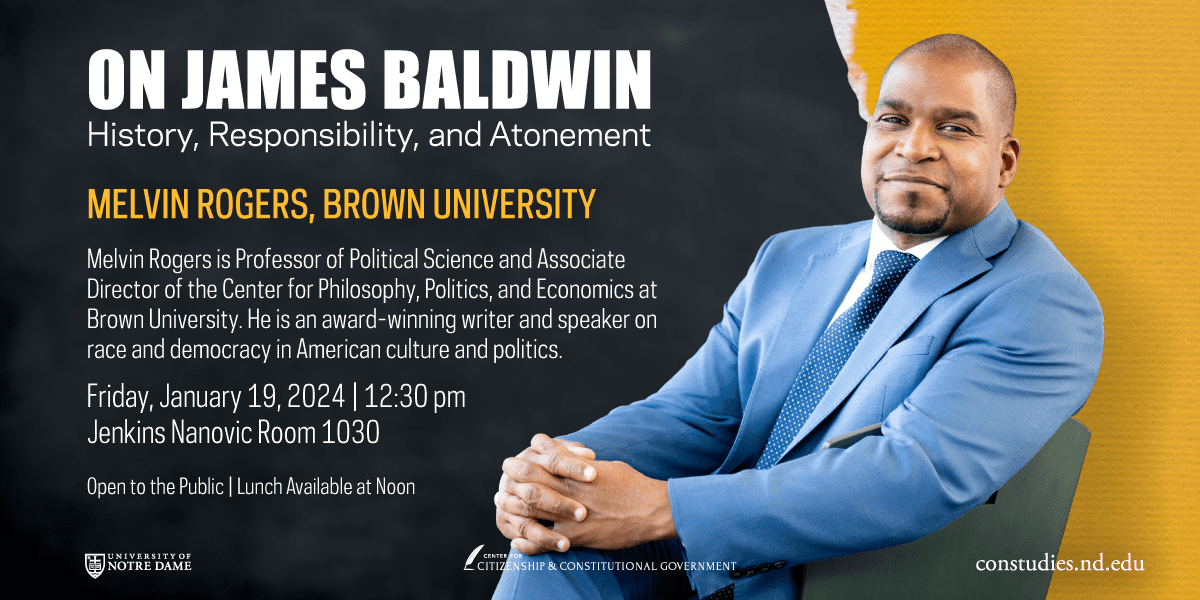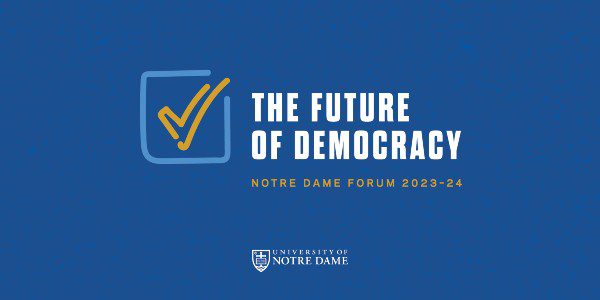Presidential debates critical to civic engagement, invigorating voters
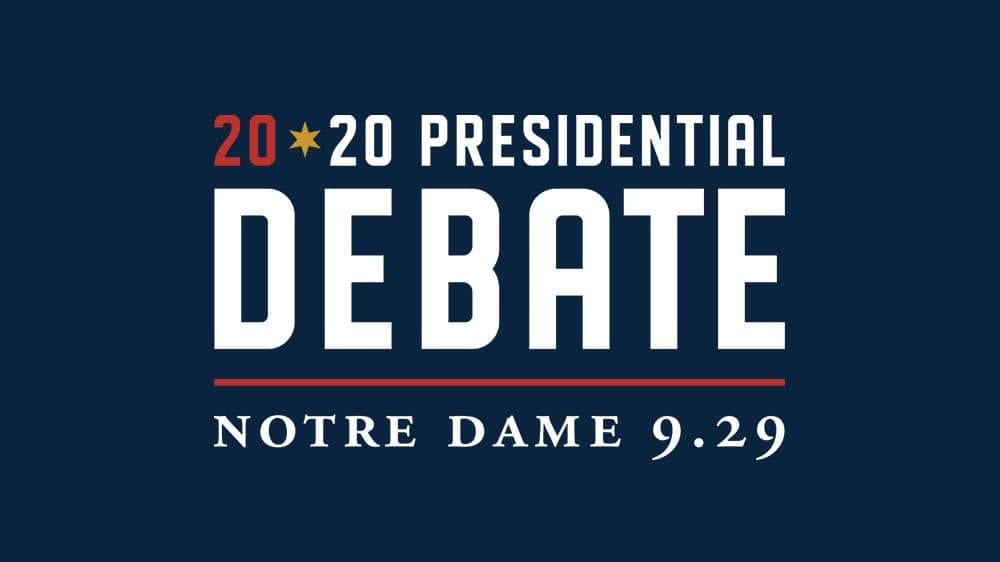
On Tuesday, September 29, the University of Notre Dame will be the backdrop for the first 2020 U.S. presidential debate.
The importance of the debate cannot be overestimated, says Robert Schmuhl, professor emeritus of American Studies at Notre Dame and the inaugural Walter H. Annenberg-Edmund P. Joyce Chair in American Studies and Journalism.
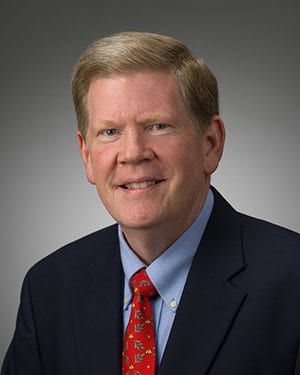
Today’s political climate adds a different dimension to debates and campaigns in general, notes Schumhl, who has studied and taught American political life and the modern American presidency for more than 40 years. “Ever since the modern presidential debates began in 1960, with the involvement of John Kennedy and Richard Nixon, they have been the equivalent to what you would call in baseball, the Fall Classic. They are the key moments when Americans focus directly on the presidential campaign and the candidates who are running,” Schmuhl says.
Debates have played a distinct role in the civic engagement of Americans since their inception, according to Schmuhl. “I’m not sure debates change minds. But what they do is invigorate people to investigate the candidates and then ultimately vote,” says Schmuhl.
“It’s different today, and an important reason is that we now live in such a partisan and polarized environment,” he said.
Schmuhl can recount many changes in debate protocol that he’s seen in his studies of the American presidency. His most recent book, The Glory and the Burden: The American Presidency from FDR to Trump (Notre Dame Press), explores the evolution of the highest office in America and the forces that have changed and affected it during the past 75 years. “Over the years we’ve seen a number of changes in the way the candidates have projected and portrayed themselves. And really, when you’re watching a debate, the body language is almost as important as the spoken words of the candidates,” Schmuhl said.
In 1992, with three major candidates debating — Republican President George H.W. Bush, Democratic party challenger Bill Clinton and independent contender Ross Perot — there was one moment that Schumuhl says caught most viewers’ attention and was widely broadcast after the debate.
“President Bush looked at his watch, and the commentary after that was he acted as though he wanted to be anywhere but that stage. It was such a telling moment,” he says. “So you see things in debates and you hear things… Lloyd Benson addressing Dan Quayle in the 1988 vice president debate: ‘I knew Jack Kennedy. You are no Jack Kennedy.’
“Let’s face it, a debate allows a very large audience to see the candidates over an extended period of time wrestling with important and significant subjects. There’s value in that, because so often we see just the quick sound bite or a 30-second commercial.”
A phenomenon that has not been discussed nearly enough in contemporary politics, Schmuhl emphasizes, is negative partisanship. “We saw that on display in 2016 to a considerable degree. It means a voter might not be tremendously enthusiastic about one candidate but that same voter might be tremendously opposed to that candidate’s challenger,” he said.
“Gone are the times when a high percentage of voters looked up to the candidates and the party they favored and followed on their own merits. Now, quite the opposite is taking place with greater frequency and intensity. Citizens regard the opposing party with hostility bordering on hatred,” he writes in his book.
If Schmuhl were to act as an advisor to Vice President Joe Biden for the debate, he says he’d tell Biden to be prepared for the relentless assault. “Everyone knows that the president will try to do whatever is possible. That is his style. If you study Donald Trump’s biography and how he rose in New York, every day was a battle. And it was a battle that was public, in the tabloids and local media of New York. He knows no other way.”
Schmuhl notes that for some voters, perhaps especially during this time of pandemic, what might be important in this debate is a candidate who is able to calm things down. “To have someone who is trying to explain complicated issues in a sober and rational way after this last presidential term, might be what some voters will be looking for,” he says. “But some voters clearly like an entirely different approach.”
With both candidates largely off the usual campaign trail, relying on online messaging during the coronavirus crisis, Schmuhl said this debate will be yet another historical change of protocol, and one that will likely be studied for years to come.
Robert Schmuhl is the inaugural Walter H. Annenberg-Edmund P. Joyce Chair in American Studies and Journalism at the University of Notre Dame. After graduating from Notre Dame with a B.A. and Indiana University-Bloomington with a Ph.D. in English and American Studies, Schmuhl joined the Notre Dame faculty in 1980. He has also held visiting fellowship or teaching positions at the University of Notre Dame of Australia, University College Dublin, St. Augustine College of South Africa, and the Rothermere American Institute at the University of Oxford. Schmuhl is the author or editor of fifteen books, most recently, Ireland’s Exiled Children: America and the Easter Rising, Fifty Years with Father Hesburgh: On and Off the Record, and The Glory and the Burden: The American Presidency from FDR to Trump.
Originally published by Carrie Stone at ndworks.nd.edu on April 20, 2020.
April 20, 2020
More Like This
Related PostsLet your curiosity roam! If you enjoyed the insights here, we think you might enjoy discovering the following publications.

